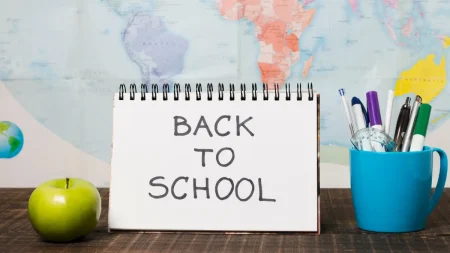From homework to research, most children rely heavily on online resources. But what happens when there’s no internet at home? Many families in South Africa struggle to provide a consistent internet connection for their children. This can pose a challenge for young learners who need resources to complete assignments or simply wish to explore educational content.
But here’s the good news: learning doesn’t have to stop when the internet is unavailable! There are numerous offline free educational tools for kids and resources that children can access and enjoy after school. This article will explore some of the best free educational tools for kids that can be used offline. Whether you’re a parent, caregiver, or teacher, these tips and resources can help bridge the gap, ensuring that every child gets a fair shot at learning.
1. Offline Educational Apps and Software
While many educational apps require internet access, some can be downloaded and used offline. These apps cover a range of subjects such as math, science, and language arts, providing interactive learning experiences even without a connection. Here are a few worth considering as free educational tools for kids:
- Khan Academy Kids: This is a fantastic free educational tool for kids that offers engaging activities and games in subjects like math, language, and social-emotional development. Once downloaded, most of its content can be accessed without the internet.
- eKitabu: A free app that provides access to digital books, including textbooks and storybooks, in English and Kiswahili. Once downloaded, children can read and learn anytime.
- Photomath: A math problem-solving app that helps kids understand mathematical concepts. Once the app is downloaded, it can work offline, allowing children to practice math problems without needing the internet.
- Wikipedia for Schools: The offline version of Wikipedia for Schools can be downloaded and used to explore educational content without an internet connection. It includes thousands of articles covering all major subjects. These apps and software can be installed on a smartphone, tablet, or computer, making them excellent free educational tools for kids to explore learning materials after school.
2. Offline Games for Educational Development
Educational games are a fun way to encourage learning without the internet. These games can be made using everyday items found at home or printed out from templates, making them perfect free educational tools for kids. Here are a few ideas:
- Flashcards: Create flashcards for various subjects like math, science, or vocabulary. Flashcards are great free educational tools for kids for quick reviews, memorization, and even friendly competition among siblings.
- Board Games: Games like Scrabble, Monopoly, and Chess are not only entertaining but also promote critical thinking, spelling, and strategy. If you don’t have these board games, you can create your own by printing templates available in libraries or community centres.
- DIY Science Experiments: No internet? No problem! You can turn your kitchen into a mini-science lab. Try simple experiments like making a volcano using baking soda and vinegar or growing a bean plant in a jar. These hands-on activities help kids understand scientific principles while having fun and serve as excellent free educational tools for kids.
Related: Applying for Government School Fees Subsidy and Exemption as a SASSA Beneficiary
3. Printed Study Materials
Printed materials like worksheets, textbooks, and study guides are invaluable when there’s no internet. Many schools and local libraries offer these resources, making them easily accessible free educational tools for kids. If you’re looking for something specific, here are some ideas:
- Workbook Exercises: Schools often provide students with workbooks for various subjects. These can be completed at home, allowing children to practice what they’ve learned in class.
- Library Books: Local libraries are a treasure trove of educational resources. Borrow books covering a range of topics, from history and geography to science and fiction. Encourage children to read at least one book a week and discuss it with them.
- Educational Magazines: Magazines like National Geographic Kids or Kids Discover are packed with fun facts and colourful illustrations that make learning enjoyable. If you can’t buy them regularly, consider subscribing to a few issues or borrowing from a library. These printed resources are highly effective free educational tools for kids that can help them gain knowledge and explore new subjects.
4. Community Resources and Programs
Many communities have local resources that offer educational support without requiring an internet connection. Community centres, youth clubs, and after-school programs can provide structured learning experiences for children, acting as free educational tools for kids. Here are some places to look for help:
- Community Learning Centres: Many communities, especially in rural areas, have learning centres equipped with books, games, and sometimes computers with pre-loaded educational content. Children can spend time here after school, using the resources to study and learn.
- Study Groups: Organizing or joining a study group with neighbours or friends can be an excellent way for children to learn together. Kids can share books, notes, and discuss topics, making learning a social activity.
- Church or Mosque Groups: Religious institutions often have study groups or educational programs for children. These may include classes in reading, writing, and arithmetic, and sometimes even more specialized topics. These can also serve as valuable free educational tools for kids in the community.
5. Outdoor Learning Activities
Exploring the outdoors can be highly educational and doesn’t require any connectivity. Children can learn about nature, the environment, and even basic science through observation and interaction. Outdoor activities are among the best free educational tools for kids as they combine physical activity with learning. Some ideas include:
- Nature Walks: Take children for a walk in a local park or nature reserve. Teach them to identify different plants, insects, and animals. You can turn it into a game by creating a checklist of things to find, like “three different kinds of leaves” or “a bird’s nest.”
- Gardening: If you have a small garden or even a few pots, gardening can be an excellent way to teach kids about biology and sustainability. Show them how to plant seeds, water plants, and observe the growth process over time.
- Star Gazing: If you live in an area with clear skies, take your child out at night for some stargazing. Teach them to identify different stars and constellations. You can use a printed star map to guide your stargazing experience. Outdoor learning activities like these are fantastic free educational tools for kids as they encourage curiosity and exploration.
6. Creative Arts and Crafts
Creativity fosters cognitive development and problem-solving skills in children. Arts and crafts can be both fun and educational. Without needing any special equipment or internet, kids can explore their artistic talents using everyday items. Here are some simple free educational tools for kids using arts and crafts:
- Drawing and Painting: Provide some paper, pencils, and crayons, and encourage children to draw something from their imagination. This activity can also be integrated with other subjects, such as drawing a science diagram or a historical scene.
- Building Models: Use recycled materials like cardboard, plastic bottles, and paper to build models. For example, create a model of a house, a vehicle, or even a volcano. This kind of hands-on project helps with spatial understanding and creativity.
- Storytelling and Playacting: Let children write short stories or plays and act them out. This improves language skills and boosts confidence. They can even put on a small show for family members! These artistic activities are ideal free educational tools for kids that promote language, creativity, and social skills.
Related: 10 Fun Ways to Improve Your Child’s Reading Skills
7. Offline STEM Kits and Tools
STEM (Science, Technology, Engineering, and Mathematics) kits are an excellent way to engage children with educational tools without the need for the internet. These kits come with all the materials needed to carry out various projects and experiments and are great free educational tools for kids. Some ideas include:
- Science Kits: Many science kits are available in stores or libraries that don’t require any online support. Children can build simple circuits, learn about magnetism, or even create chemical reactions using the instructions provided.
- Engineering Toys: Building blocks or construction kits like Lego can be used to teach children engineering principles. Challenge your child to build different structures and explain the science behind them.
8. Encouraging Family Involvement in Education
Parents and guardians play a crucial role in a child’s education. Even without the internet, there are many ways families can get involved in their child’s learning and serve as the most effective free educational tools for kids:
- Homework Assistance: Sit down with your child during homework time. Even if you’re not familiar with the subject, showing support and discussing the topics can boost their confidence.
- Storytime: Reading stories to younger children or discussing books with older ones can foster a love for reading and storytelling.
- Home “Workshops”: Create a mini-workshop at home where you teach children various life skills. This could be anything from basic cooking and sewing to fixing a bike.
In a world where the internet often feels indispensable, it’s reassuring to know that educational tools don’t have to be bound by connectivity. There are plenty of offline resources that can foster learning, creativity, and critical thinking in children. With the right combination of printed materials, hands-on activities, and community support, kids can continue to grow academically and socially, even without an internet connection.
These free educational tools for kids ensure that learning never stops, no matter the circumstances.










